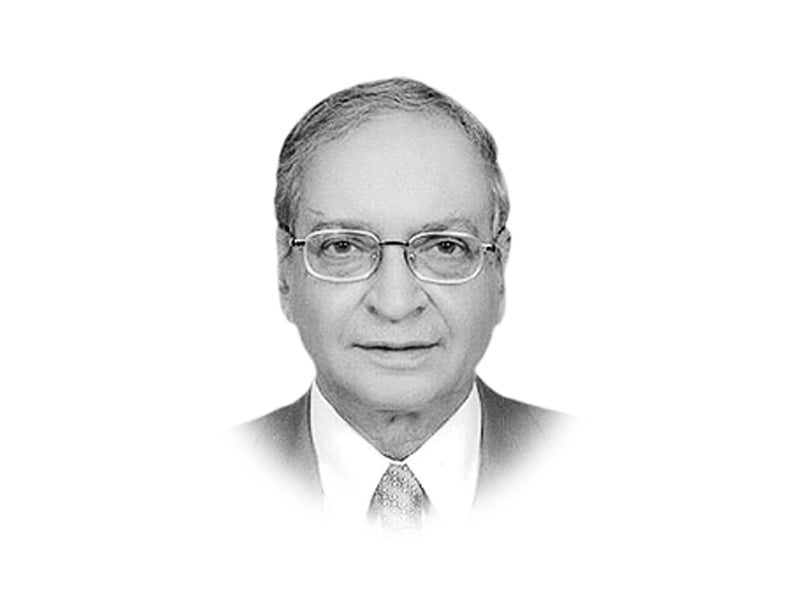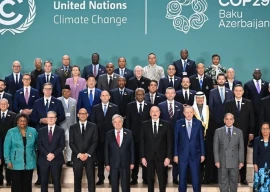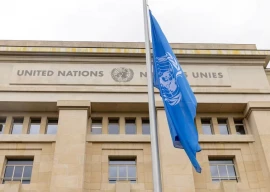
This was a situation tailor-made for the ingress of non-state actors of all kinds. The militant group Jabhatal Nusra, later al Qaeda, followed by Hezbullah, all entered the fray. Unfortunately, some of these non-state actors came to be backed by external players, especially Qatar, the UAE and Saudi Arabia. Behind them were also the US and perhaps, France and the UK. Hezbullah jumped in to back the Assad government as did Russia and Iran. The flames of war were fanned by provision of funds and weapons to the rebels and similar material assistance extended to the government by its avowed allies. The rebel and the government stand-off was further aggravated by the poisonous element of sectarianism, which had arrayed the Jubhat and al Qaeda, with the largely Sunni rebel forces, and the Hezbullah and the smaller Shia parties, backed by Iran, with the government forces.
By June 2013, the motley group of opposition forces had gained control of large swathes of the north and east of the country, representing nearly 40 per cent of its territory. Of course, the state still has control over most of the south and west, and 60 per cent of the population. According to UN estimates, the total death toll has surpassed the 100,000 mark. Again according to UN statistics, a total of four million Syrians have been displaced within the country and 1.8 million have fled to other countries. Apart from the human cost, which is considerable, there has been wanton destruction of urban centres, shrines and monuments. This is particularly distressing as Syria has rich historical and archaeological remains. The old cities of Damascus, Aleppo and Homs have been urban centres from the Greek and Roman times, to the Byzantine era, to the early Islamic period till the present day. Islamic monuments from the Umayyad Mosque to the graves of early Muslim personalities, to the mausoleums of Salahuddin Ayubi, Khalid bin Waleed and Hazrat Zainab (RA), are all under threat of destruction.
The tragedy is that let alone the possibility of an end to the conflict, the latest US threat of launching military strikes at alleged chemical weapons repositories holds the peril of further death and destruction. The US has no business interfering in Syria, as its intended action can only further compound an already volatile state of affairs. President Obama had declared that the crossing of the so-called ‘red line’ of use of chemical weapons would trigger US action. The UN is currently investigating the veracity of reports of use of chemical weapons, which is essential for establishing the facts, as US intelligence is suspect, given its past record of erroneous assessment of Iraq’s possession of weapons of mass destruction. Secondly, it will have to be established whether the use of chemical weapons was made by the government or the rebel forces.
The better recourse for the US would be to put its weight behind the holding of an all-inclusive Geneva Conference proposed by the UN. All effort must be directed towards ending the fighting. For Syria, the survival or otherwise of Bashar alAssad aside, its very existence is at stake. Moreover, its collapse can unleash uncontrollable deleterious forces in the Middle East. Henry Kissinger had famously remarked once that there can be no war in the Middle East without Egypt and no peace in the Middle East without Syria.
Published in The Express Tribune, September 4th, 2013.
Like Opinion & Editorial on Facebook, follow @ETOpEd on Twitter to receive all updates on all our daily pieces.
COMMENTS (5)
Comments are moderated and generally will be posted if they are on-topic and not abusive.
For more information, please see our Comments FAQ

1722586547-0/Untitled-design-(73)1722586547-0-165x106.webp)


1732326457-0/prime-(1)1732326457-0-165x106.webp)


1731325890-0/trump-(24)1731325890-0-270x192.webp)









If syria and iraq used chemical weapons then america itself used in veitnam...????
Can Israel survive without the WEST ?
As I foresee, all big countries around Israel will be broken into smaller countries so that they can keep fighting with each other and Israel remains safe.
Henry Kissinger had famously remarked once that there can be no war in the Middle East without Egypt and no peace in the Middle East without Syria. -- very very good.... so what is exactly the problem here? It is all for the good is it not? After all, for years and years and years the Muslim world has been haranguing about how the entire national boundaries of the Middle East countries were an "artificial creation" by the earlier colonial powers....so therefore sooner or later this was to unravel anyway -- so WHY should it matter that it has been now instigated by the USA or UK or France or whoever else? In a way it is good that it is these same (ex) colonial powers that are now playing a major role in RE-ALIGNING the boundaries or whatever of what the Middle East should really look like... surely so what we will see in the end (whenever that may come) will be what this region ought to really be like. And the sooner it happens the better .... for my money the Middle East only spells chaos -- now Syria, next Iran.... and eventually the "Holy Grail" i.e. SAUDI ARABIA ...!!!
Syria is a gaming platform now and for the big players, it will show their strategic strength. If I were in West's strategic war think-tank, will use this episode of chemical usage to launch massive offence against Syrian army. Similarly if I were in Russian's strategic war think-tank, will create an episode of similar scud missile on it's own interest places in Syria including Russian ships (this may cause loss of some own life/property/embassy) and declare a war against the rebels/free army and then boldly bring more military hardware to help Govt. troop. Then this issue will become more complicated and West will have to re-draft strategies.John Shelly Wrote today in wsj: